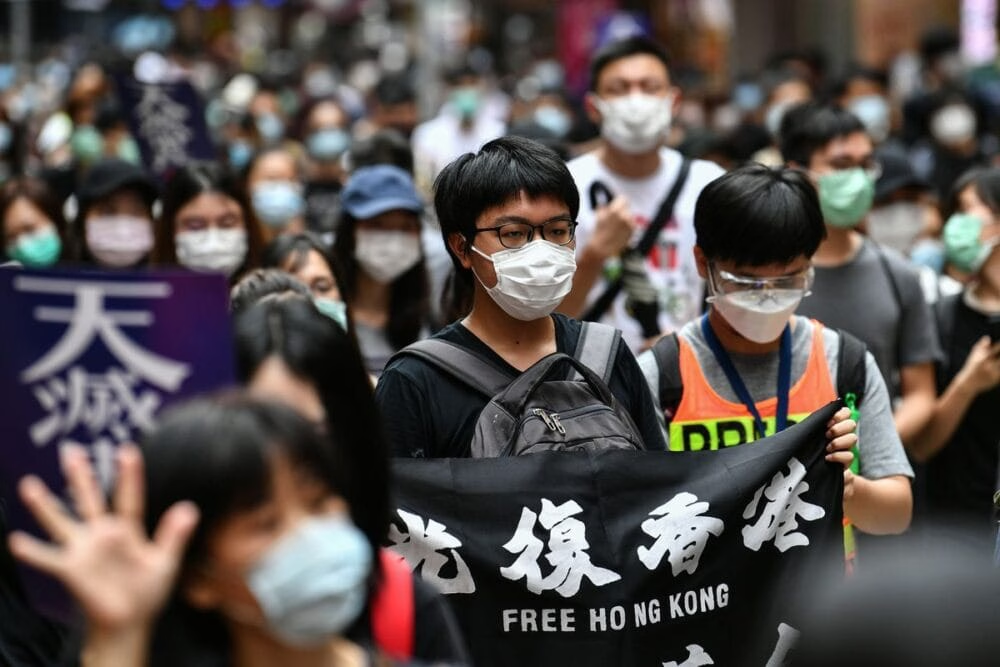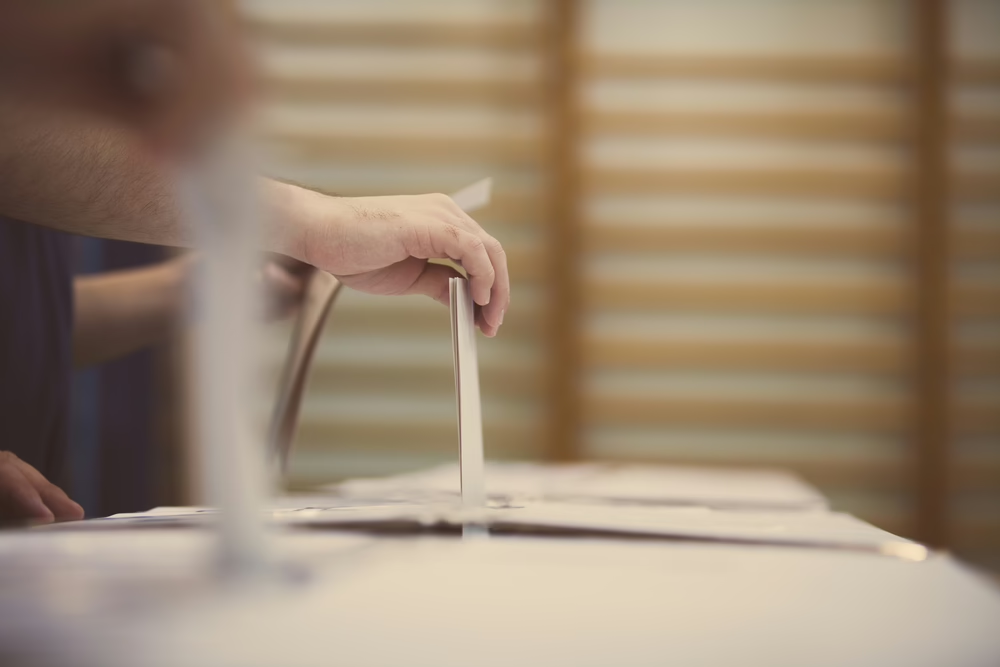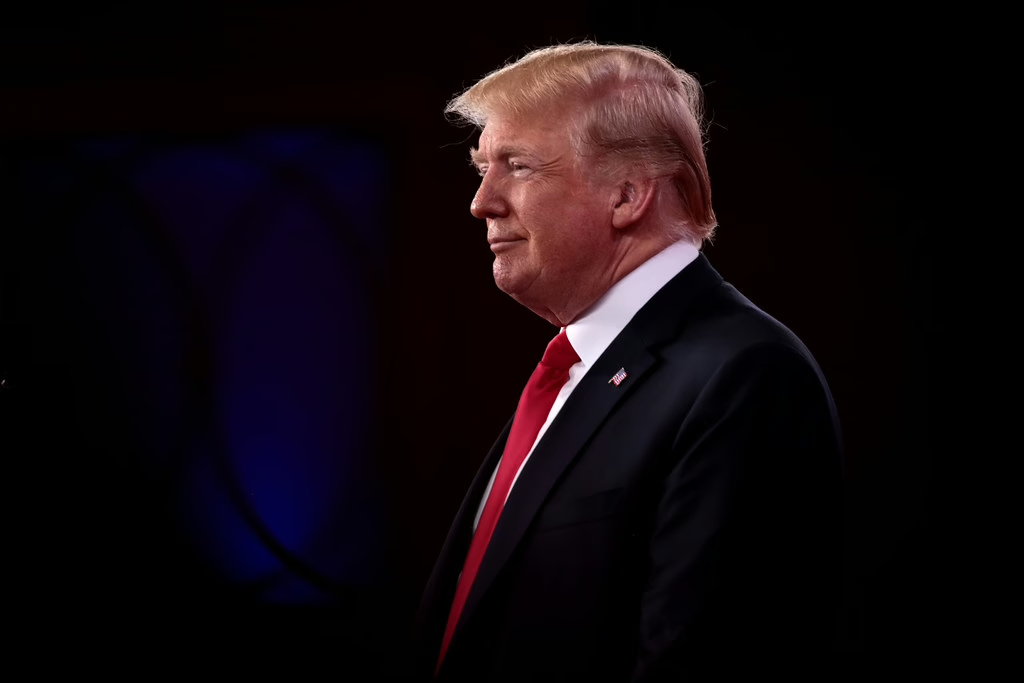
Accountability Under Threat As President Trump Removes Another Inspector General
Donald Trump recently removed the Inspector General for the State Department, Steve Linick – the latest (fifth) in a string of firings of Inspectors General. Secretary of State, Mike Pompeo had urged the Inspector General’s removal just as Linick was investigating Pompeo for potential misappropriation of taxpayer dollars by forcing his staff to perform personal errands, like picking up take-out and walking the family dog. Furthermore, Linick was simultaneously investigating whether Pompeo unlawfully circumvented a congressional ban to resume arms sales to Saudi Arabia and the United Arab Emirates.
Linick’s departure follows four other Inspectors General who were fired by the Trump Administration, including: Christi Grimm, of Health and Human Services, who was fired after reporting severe shortages of coronavirus testing kits; Michael Atkinson, of the Intelligence Community, who was fired after forwarding the Ukraine whistleblower complaint against Trump’s administration to Congress; Glenn Fine, of the Defense Department, who was set to oversee the $2 trillion coronavirus stimulus package; and Mitch Behm, of the Transportation Department, who was to serve as a member of the Pandemic Response Accountability Committee.
- What role do IGs have?
In the wake of Watergate, President Jimmy Carter signed the Inspector General Act of 1978 into law, formalizing critical checks and balances within the executive branch of the federal government. Inspectors General operate independently to carry out non-partisan investigations into allegations of fraud, abuse, and waste, spanning 74 distinct federal agencies. In other words, they keep our government honest. Every year IGs return billions of dollars in audits and recoveries to the U.S. Treasury. IGs have also provided oversight of high-profile revelations such as the FBI’s use of fake emergency letters to gather American citizens’ phone records in 2007 and the CIA’s notorious use of torture to interrogate prisoners of war in 2004. And for every scandal uncovered, it is likely the watchful eye of IGs deter countless others.
- Why are President Trump’s actions a threat to democracy?
It is within Trump’s power to remove Inspectors General, but since the 1978 Act there has been a robust norm shielding IGs against political retribution in order to respect their independence and uphold the Rule of Law. Recent events, however, are showing just how quickly democratic norms can be undermined, or even forgotten.
Indeed, in 2009, President Obama removed Gerald Walpin, Inspector General of the Corporation for National and Community Service (CNCS), citing concerns presented by a bi-partisan board. However, even after providing substantive, non-political reasons for dismissing Walpin, Obama still faced backlash for allegedly ousting the IG in protection of political ally and Mayor of Sacramento, Kevin Johnson. Many Republicans justifiably saw his actions as a threat to the norm protecting the independence of the IGs. In contrast to Obama, Trump has not provided any substantive reasons to dismiss multiple IGs, all while these IG’s were investigating misconduct within the administration.
These actions cross a line, severely undermining oversight of the Trump administration and demonstrating just how fragile our system of checks and balances truly is.

The End of Democracy in Hong Kong?
Last Thursday, China announced its “boldest move” yet to tighten its authoritarian grip over Hong Kong by proposing a sweeping national security law in the National People’s Congress. The new law would criminalize “treason, secession, sedition, (and) subversion” against the central government in Beijing. And, to ensure enforcement, it would enable mainland security agencies to set up organizations in Hong Kong.
This latest act by Beijing bears the troubling echoes of last summer’s extradition bill, which would have allowed the extradition of criminal suspects to mainland China. Thankfully, peaceful mass rallies led to the withdrawal of the bill and gave the world hope that Hong Kong could remain a free and democratic territory. But now, China has once again tried to re-assert its authority over the semi-independent territory. And unlike the extradition bill, which solely focused on criminal suspects, these new draconian laws could grant Beijing the power to punish anyone who participates in any form of dissent. Furthermore, Beijing might be able to prohibit anyone who is involved in international advocacy efforts from running for public office. The state of democracy in Hong Kong is facing a critical tipping point.
- What is the “one country, two systems” framework and is it really in jeopardy?
Over a century after Britain colonized Hong Kong following the First Opium War, the territory returned to Chinese sovereignty in 1997. During this “handover,” China agreed to grant the city its own mini-constitution and a separate legislature for fifty years. Under this “one country, two systems” framework, Hong Kong has been able to remain semi-autonomous even while it is still a part of the People’s Republic of China. But since the assumption of power by Xi Jinping, Beijing has been increasingly assertive in its efforts to institutionalize Communist Party control. If the national security law passes, a city that prides itself on its civil liberties and the rule of law will be transformed into one governed by the Rule of the Communist Party. Indeed, as Hong Kong legislator Dennis Kwok warns, “If this move takes place, ‘one country, two systems’ will be officially erased.”
- What are the implications for America?
America is no mere bystander in this conflict. From an economic perspective, America depends on a stable, prosperous Hong Kong. Nearly every U.S. financial firm operates in the region, and the city’s special status makes it a key trading partner. But more significantly, our country must consider the global implications for democracy.
If China is allowed to destroy Hong Kong’s democratic system, flouting international law in the process, what’s next? As Beijing seeks to carve out exceptions for itself in the liberal-international order, or even redirect the global order entirely with itself at the center, the U.S. must do all it can to support democracies under threat from Chinese aggression. Two U.S. senators plan to introduce a bi-partisan bill that would sanction Chinese officials who enforce the new law and penalize banks who do business with them. It is unlikely, however, that these sanctions will fundamentally alter Beijing’s political calculus, leaving Hong Kong’s status more uncertain than ever.

The German High Court Expands Privacy Rights in an Unprecedented Ruling
On May 19, Germany’s highest legal court ruled that privacy rights guaranteed in the country’s constitution are universal and should be extended to any foreigner living outside of Germany, urging the government to update the laws that regulate the country’s foreign intelligence agency (known as the BND). The previous scope of permitted surveillance, established in 2016 as a response to multiple Islamist terror attacks, had permitted the BND to evaluate and share data collected through communications between non-Germans living outside of the country.
Although this legislation was implemented largely to surveil suspected terrorists who could potentially threaten Germany, the BND ended up surveilling people who posed no particular threat. For example, in 2017, the BBC in England voiced a complaint that the BND had been surveilling a number of their staff’s emails and phone calls, and Der Spiegel reported that the BND was monitoring at least 50 international journalists at the time.
Now, after a lengthy appeals process, instigated by a group of journalists and civil rights organizations, the court ruled that these broad surveillance practices violate Article 10 of the German constitution, which safeguards the right to privacy.
- Why is this ruling important?
The legislation marks the first time that a right in the German Constitution has been guaranteed to non-Germans outside the country, a historic moment in the legal history of the nation. And importantly, this ruling prohibits the BND from spying on non-Germans overseas absent some legal justification, a huge overhaul in how Germany conducts surveillance.
Surveillance has been a topic of heated discussion in Germany since it was leaked in 2013 that intelligence services around the world, including the BND, were committing significant breaches of privacy (the BND was revealed to have spied on the FBI, the World Health Organization and UNICEF amongst other groups). The German public and government were especially outraged after the NSA admitted it had tapped Chancellor Angela Merkel’s cell phone. In addition to safeguarding the right to privacy, the High Court’s ruling furthers the protection of the freedom of the press guaranteed in Article 5 of the Constitution, preventing the government from surveilling and interfering in the interests of foreign journalists living outside of Germany.
- How does German law in this area compare to the United States?
Unlike in Germany, non-citizens in America have always been afforded constitutional protection under the Bill of Rights. However, this robust protection only applies when non-citizens are on US soil. This allows for the creation of legal grey zones outside of the US like Guantanamo Bay, where prisoners can be kept without due process. And specifically for surveillance purposes, Section 702 of the 2008 FISA Amendment grants intelligence agencies the authority to broadly surveil all non-citizens living outside the US. The German High Court’s ruling prevents its government from authorizing a similar program.
It should be noted, however, that this recent ruling has been a target of criticism within Germany. Many of Chancellor Angela Merkel’s own MPs criticized the High Court, arguing it limited the country’s ability to protect itself and address strategic interests abroad. Ultimately, every nation has to establish a compromise between security and privacy on its own terms. But whether or not one agrees with the German court’s decision, it has prompted an important discussion about privacy.

Australian Government and Indigenous Communities Fight Coronavirus
Since the outbreak of coronavirus, the Australian government has successfully limited infections among the country’s indigenous population. Officials recognized that this group’s underlying health issues left them highly vulnerable to the virus, so in March they restricted outside visitors to medical officials to reduce the risk of an outbreak. This measure was followed by the formation of a national advisory group, which consulted with local health care workers and disease experts to formulate an emergency response plan. In accordance with the group’s recommendations, the government has established mobile respiratory clinics, telehealth infrastructure, and stringent screening measures to fight potential outbreaks. So far, this response has been successful in limiting indigenous coronavirus cases to just 44 out of a total population of more than 120,000.
- What can the United States learn from Australia’s coronavirus response?
Like Australia, the United States has a sizable indigenous population that is vulnerable to the coronavirus. But American officials have struggled to protect them, as poor health infrastructure and a crushing economic toll have limited efforts to control the spread. Indigenous medical services, weakened by years of poor funding, have crumbled under an influx of cases. Cases have soared as a result, with tribes like the Navajo and Choctaw experiencing infection rates at double or triple the national average.
While Congress has since provided $8 billion in much-needed financial relief for these tribes through the CARES Act, American officials should consider adopting some of Australia’s approaches to limit further spread. Like the White House Coronavirus Task Force, the federal government could establish a specialized indigenous advisory group, consisting of local health care workers, epidemiologists, and community leaders, to develop coordinated testing and contact tracing strategies to reduce infections. And this group could also invest in measures such as telehealth to boost indigenous health infrastructure. This innovation allows healthcare workers to conduct virtual consultations that make them more responsive to the spread of the virus among indigenous Americans.
With the current crisis far from over, these reforms are urgently needed. Experts are forecasting a second wave of coronavirus cases by the fall, and further inaction could have devastating consequences for America’s indigenous communities. With Australia as a guide, America must act quickly to protect them.






